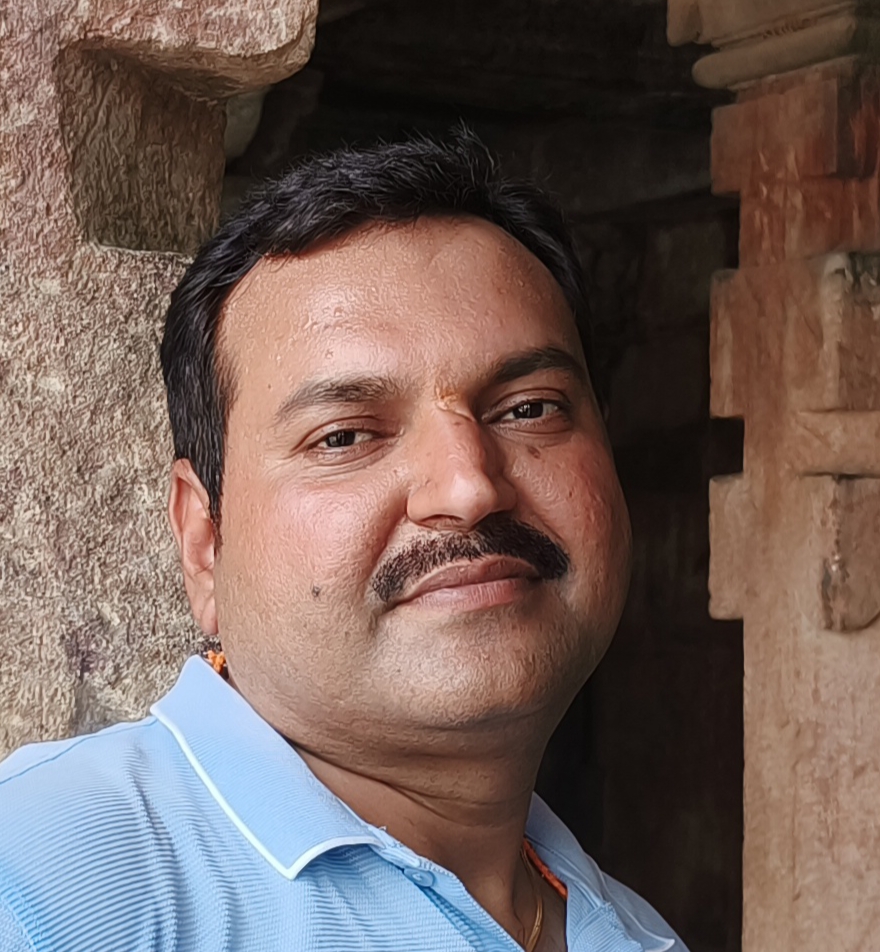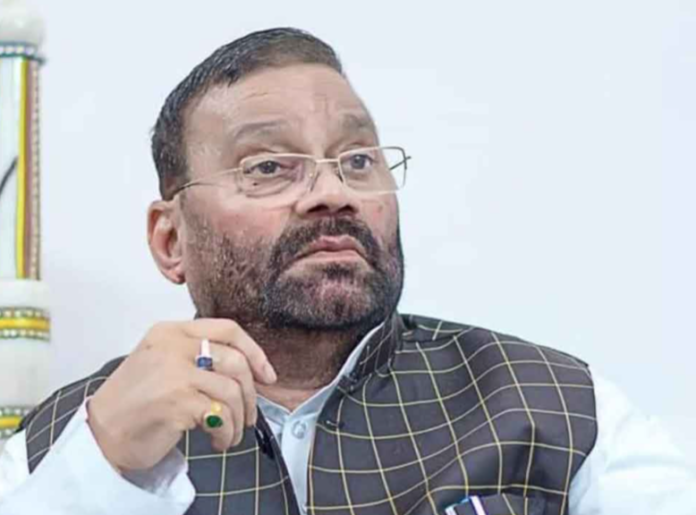
Amit Pandey
Swami Prasad Maurya, a former minister, and leader of the opposition in Uttar Pradesh has announced the relaunch of his Rashtriya Sochti Samaj Party (RSSP), which he had founded in 2016 after quitting the Bahujan Samaj Party (BSP). Maurya, who had joined the Bharatiya Janata Party (BJP) in 2016 and served as a cabinet minister in the Yogi Adityanath government, has now switched sides to the Samajwadi Party (SP)-Congress alliance ahead of the 2024 Lok Sabha elections.
Maurya, who claims to represent the interests of the backward and oppressed classes, has accused the BJP of being anti-poor and anti-farmer, and the SP of being dominated by the Yadav family and neglecting the welfare of other communities. He has also criticized the BSP supremo Mayawati for running a “money for ticket” racket and promoting dynastic politics. Maurya has said that his new party will work for the upliftment of all sections of society and will follow the ideology of Mahatma Gandhi, Dr. B.R. Ambedkar, and Ram Manohar Lohia.
Maurya has also announced that his party will contest the Lok Sabha elections in alliance with the Congress, which he believes is the only national party that can challenge the BJP and its communal agenda. He has said that he will address a rally at the Talkatora Stadium in Delhi soon to formally launch his party and its manifesto. He has also expressed his willingness to join the Bharat Jodo Nyay Yatra, a nationwide campaign led by Congress leader Rahul Gandhi to highlight the failures of the Modi government and demand justice for the people.
Despite the challenging circumstances, there is a sense of ambition amongst the members of the INDIA alliance. While the announcement of RSSP did not produce the desired response, they remain determined to find a way forward. The SP chief’s demands may not have been fulfilled by the Congress-led alliance, but this setback has only fueled their determination to resolve. As state politics brims with rumors and various options, the members of the INDIA alliance are poised to navigate through this difficult phase with an unwavering ambition to find common ground and revive the hopes of a successful partnership.
Amid the deteriorating condition of Mayawati, there is a vacuum that many are seeking to fill. The Bheem army chief attempted to step up, but unfortunately, the people of U.P. did not rally behind him. However, it is important not to overlook the fact that Maurya, who is actively involved in the PDA, may also try to seize this opportunity and establish himself in the realm of politics. This could either be a genuine political move or a calculated strategy by the saffron brigade to divide and weaken the associated vote of the backward communities. If multiple candidates contest in the same constituency, it may aid the BJP in polarizing Hindu votes under a single banner. This creates an intriguing political landscape with various possibilities and potential outcomes.
However, Maurya’s political move has raised several questions about his credibility, consistency, and prospects. Maurya, who has changed his party affiliation four times in the last eight years, has been accused of being an opportunist and a turncoat by his former colleagues and rivals. He has also faced allegations of corruption, nepotism, and criminality in his political career. His daughter, Sanghmitra Maurya, is a BJP MP from Badaun, and his son, Utkarsh Maurya, is also a BJP leader. It is unclear how Maurya will reconcile his ideological differences with his family members and his former and current allies.
Moreover, Maurya’s decision to revive his RSSP, which had failed to make an impact in the 2017 assembly elections, seems to be a desperate attempt to bargain for more seats and clout in the SP-Congress alliance. Maurya, who lost his assembly seat in 2017, is unlikely to have much influence or support base among the voters, especially after his stint in the BJP. His party’s name, which resembles the Rashtriya Swayamsevak Sangh (RSS), the ideological mentor of the BJP, may also confuse and alienate his potential supporters.
Furthermore, Maurya’s alliance with the Congress may not prove to be beneficial for either party, as both are struggling to regain their lost ground in Uttar Pradesh, which sends 80 MPs to the Lok Sabha. The Congress, which had won only seven seats in 2019, is facing a leadership crisis and a lack of organizational strength in the state. The SP, which had won only five seats in 2019, is facing a challenge from the BSP and other regional parties, as well as the anti-incumbency factor against its previous government. The seat-sharing talks between the SP and the Congress are also reportedly facing hurdles, as both parties are demanding more seats and key constituencies.
Therefore, Maurya’s political gamble of relaunching his new party and joining hands with the Congress may not pay off in the 2024 Lok Sabha elections. Maurya may end up being a marginal player in the state’s politics, and may even jeopardize the prospects of the SP-Congress alliance. Maurya will have to prove his mettle and his loyalty to his new partners, and also convince the voters that he is not a political opportunist, but a sincere leader who can deliver on his promises.


